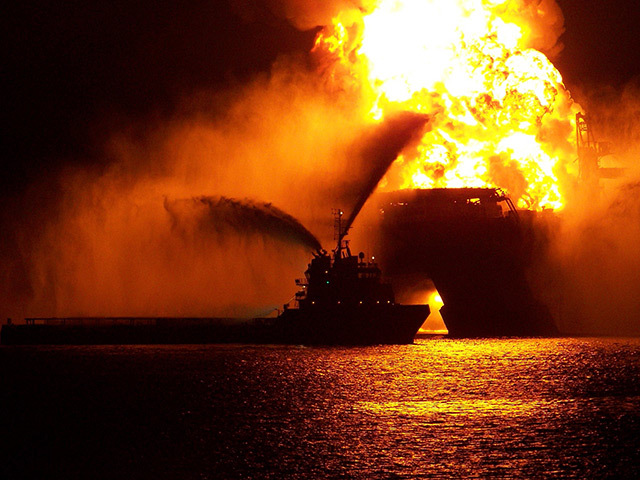
Offshore oil rig workers will remain without broad whistleblower protections after a federal agency this week opted to withdraw recommendations made in the aftermath of the 2010 Deepwater Horizon tragedy in the Gulf of Mexico.
The U.S. Chemical Safety and Hazard Investigation Board opted to pull its worker participation and whistleblower protection recommendations after the federal agency that regulates offshore drilling, the Bureau of Safety and Environmental Enforcement, refused to enact the protections. Under President Donald Trump, the bureau has shifted its focus to reducing what it calls unnecessary regulations.
The chemical safety board is an advisory panel without regulatory authority. Its recommendations of April 2016, while President Barack Obama was still in office, would have allowed oil rig employees to stop work in the event of safety concerns and provide them legal whistleblower protections against retaliation.
The chemical safetly board voted 3-1 to withdraw the recommendations, citing confusion over which agency would oversee the implementation – the Bureau of Safety and Environmental Enforcement, Occupational Safety and Health Administration or Coast Guard. The only opposing vote was Rick Engler, who argued the safety bureau has oversight authority.
“The [chemical safety board] is entrusted by the American people to do all that we can do to prevent such catastrophes,” Engler said. “The recommendations at issue, if implemented, can help prevent the next disaster.”
The 2010 Deepwater Horizon explosion killed 11 workers and resulted in a three-month discharge of nearly 4 million barrels of oil into the Gulf of Mexico off Louisiana. The resulting investigations determined that BP and its contractorscut corners and ignored warning signs.
The Bureau of Safety and Environmental Enforcement was created in 2011 because of the regulatory failings identified after the Deepwater Horizon tragedy.
Even with the downturn in oil prices and the reduced offshore drilling activity, the concerns remain great, Engler said. “Workforce cutbacks increase economic fears among workers, diminishing the likelihood that incidents, hazards and potential risks are discussed and reported,” he said.
But Vanessa Sutherland, chairwoman of the chemical safety board, reiterated that it cannot force the Bureau of Safety and Environmental Enforcement to act. She’s asking Congress to intervene and clarify the agency’s authority. “It is clear that there is ambiguity within the federal government regarding the jurisdiction of offshore worker protections.”
For now, the bureau, which is an agency of the Interior Department, is focused on relieving the offshore oil and gas industry of unnecessary regulations without jeopardizing safety, said Gregory Julian, a spokesman for the Bureau of Safety and Environmental Enforcement. Douglas Morris, chief of the agency’s offshore regulatory program, told the chemical safety board that it should instead work with industry groups such as the American Petroleum Institute and International Association of Drilling Contractors to develop voluntary guidelines for protecting offshore workers and whistleblower.
Under Trump, the Interior Department has promoted the expansion of oil and gas production both onshore and off. Trump’s interior secretary, Ryan Zinke, has said the stars have lined up for the U.S. oil and gas sector to dominate global energy markets.
This first appeared on the Houston Chronicle – an Energy Voice content partner. For more click here.
Recommended for you
